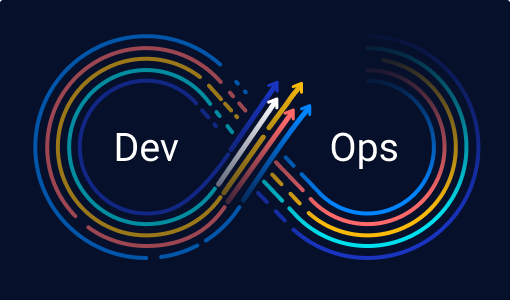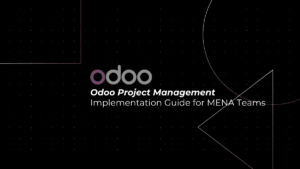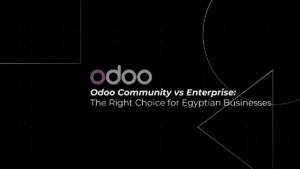In the dynamic realm of software development, the integration of project management and DevOps practices is crucial for the streamlined execution of projects. Zoho Projects, a leading project management tool, offers robust features that can seamlessly integrate with various DevOps tools, enhancing the efficiency and effectiveness of software development lifecycles. This comprehensive blog explores how integrating Zoho Projects with DevOps tools can transform software development processes, providing a competitive edge in today’s fast-paced technology landscape.
Table of Contents
ToggleUnderstanding Zoho Projects and DevOps
Zoho Projects is a cloud-based project management software that helps teams plan work, track tasks, collaborate, and achieve project goals effectively. It offers functionalities such as task management, milestones, Gantt charts, timesheets, and detailed reporting.
DevOps, on the other hand, is a set of practices that combines software development (Dev) and IT operations (Ops), aimed at shortening the systems development life cycle and providing continuous delivery with high software quality. DevOps tools typically cover areas like continuous integration/continuous deployment (CI/CD), monitoring, testing, and configuration management.
Why Integrate Zoho Projects with DevOps Tools?
Traditional development processes often suffer from communication silos, manual tasks, and limited visibility. Integrating Zoho Projects with tools like CI/CD pipelines and code repositories addresses these challenges by:
- Enhanced Collaboration:
Zoho Projects offers a centralized platform for teams to collaborate, discuss tasks, and ensure everyone is on the same page throughout the development process. Integrate communication tools like Slack to receive real-time updates on builds, deployments, and potential issues.
- Automated Workflows:
Simplify repetitive tasks by automating workflows between Zoho Projects and your DevOps tools. Trigger builds automatically when new features are assigned in Zoho Projects, or automatically update project tasks based on build statuses within your CI/CD pipeline.
- Improved Visibility:
Gain a holistic view of the development process by integrating code repositories like Git with Zoho Projects. Track code changes, identify issues, and link them to specific tasks for better context.
- Streamlined Issue Management:
Integrate bug tracking tools with Zoho Projects to streamline issue management. Report bugs directly within Zoho Projects, link them to relevant tasks, and track their progress throughout the development cycle.
- Data-Driven Decision Making:
Harness the power of combined data from Zoho Projects and DevOps tools. Analyze project progress alongside deployment data to identify bottlenecks and optimize your development process continuously.
Best Practices for Maximizing Integration Benefits

To maximize the benefits of integrating Zoho Projects with DevOps tools, consider the following best practices:
- Continuous Training: Regularly train your team on how to use both Zoho Projects and the integrated DevOps tools effectively.
- Iterative Improvement: Regularly review the integration setup to identify and implement improvements, ensuring that your processes evolve with changing project requirements and technology advancements.
- Stakeholder Engagement: Keep all stakeholders engaged and informed about how the integration benefits the project and contributes to its goals.
- Security and Compliance: Ensure that all integrations comply with relevant security standards and data protection regulations, especially when dealing with sensitive information.
Key Features of Zoho Projects & DevOps Integration
Zoho Projects offers several features that are particularly useful when integrated with DevOps tools:
Task Automation: Automate routine tasks based on specific triggers within Zoho Projects.
Customizable Dashboards: Create custom dashboards to monitor various aspects of the software development lifecycle, integrating data from DevOps tools.
Interoperability: Zoho Projects can integrate with popular DevOps tools like Jenkins, Git, and Docker through APIs and webhooks, facilitating a seamless flow of information.
Time Tracking and Reporting: Monitor the time spent on different phases of development and operations, providing insights into areas where efficiency can be improved.
Step-by-Step Guide to Integrating Zoho Projects with DevOps Tools
Integrating Zoho Projects with DevOps tools involves several key steps:
1. Assess Requirements: Identify which aspects of your DevOps pipeline could benefit from integration with Zoho Projects. Common integrations involve deploying updates, issue tracking, and real-time status updates.
2. Choose the Right Tools: Select the tools that best meet your needs. Popular choices include Jenkins for continuous integration, Git for version control, and Selenium for automated testing.
3. Configure Integrations: Use Zoho Projects’ API and third-party plugins to connect with your chosen DevOps tools. This might involve setting up webhooks for triggering tasks in Zoho Projects based on events in your CI/CD pipeline.
4. Set Up Dashboards: Customize dashboards in Zoho Projects to include metrics from your tools, providing a comprehensive overview of both project management and technical deployment statuses.
5. Test the Integration: Run tests to ensure that the integration works as expected. Check that automated tasks are triggered appropriately and data flows correctly between systems.
6. Roll Out and Monitor: After successful testing, roll out the integration to your whole team. Continuously monitor the integration to ensure it provides the expected benefits and make adjustments as needed.
Popular DevOps Tools for Integration with Zoho Projects
A wide range of tools integrate seamlessly with Zoho Projects, allowing you to customize your workflow based on specific needs. Here are some popular choices:
This is one of the most widely used version control systems globally. Its integration with Zoho Projects allows for seamless synchronization of commits, pull requests, and branch changes directly with tasks and bugs, which is invaluable for tracking code changes linked to specific project tasks.
- Jenkins:
As a leading automation server used for continuous integration and continuous deployment, Jenkins plays a critical role in DevOps pipelines. Its integration with Zoho Projects helps manage builds and deployments directly from the project management interface, which is crucial for maintaining smooth operational workflows.
- GitLab:
Similar to GitHub, GitLab is a complete DevOps platform in itself. Its integration with Zoho Projects enriches the project management tool with direct links to code commits and merge requests, enhancing transparency and traceability of code changes in project tasks.
- Slack:
While primarily a communication platform, Slack’s integration is vital for facilitating real-time updates and discussions related to DevOps activities. It helps in maintaining continuous communication among team members about deployments, updates, and issues, making it a popular choice for teams prioritizing collaboration and quick responses.
Making the Most of Zoho Projects Integration
Here are some tips to optimize your DevOps workflow through Zoho Projects integration:
- Standardize Workflows:
Define clear and consistent workflows within Zoho Projects and your chosen tools. This ensures everyone understands the process, minimizes errors, and facilitates efficient collaboration.
- Leverage Custom Fields:
Utilize custom fields in Zoho Projects to capture additional data relevant to DevOps processes. This might include environment details, bug severity levels, or deployment versions. These fields can then be synced with your DevOps tools for even richer data analysis.
- Utilize Reporting and Analytics:
Both Zoho Projects and many DevOps tools offer reporting and analytics capabilities. Leverage these features to gain insights into project progress, identify bottlenecks, and track key performance indicators (KPIs) related to your development lifecycle.
- Invest in Training:
Provide proper training to your development and operations teams on using Zoho Projects and integrated DevOps tools effectively. This ensures everyone understands the functionalities and can leverage them to their full potential.
Beyond Integration: A Holistic Approach to DevOps

While integration is a powerful tool, it’s just one piece of the DevOps puzzle. Here are some additional considerations for a successful approach:
Cultural Shift: Embracing a culture of collaboration and continuous improvement is vital. Break down silos between Dev and Ops teams, and foster open communication across all departments involved in the software development lifecycle.
Infrastructure as Code (IaC): Adopt IaC principles to manage your infrastructure in a code-driven way. This allows for automated provisioning and configuration of your development, testing, and production environments, further streamlining the DevOps workflow.
Continuous Monitoring: Implement continuous monitoring throughout the development lifecycle. Track code quality metrics, identify performance bottlenecks, and gather feedback from stakeholders to continuously refine and improve your software delivery process.
Integrating Zoho Projects with DevOps tools offers significant advantages for software development teams, from improving collaboration and visibility to streamlining operations and increasing efficiency. By following the steps and best practices outlined in this guide, organizations can effectively enhance their software development lifecycles, ensuring timely delivery of high-quality software products.




